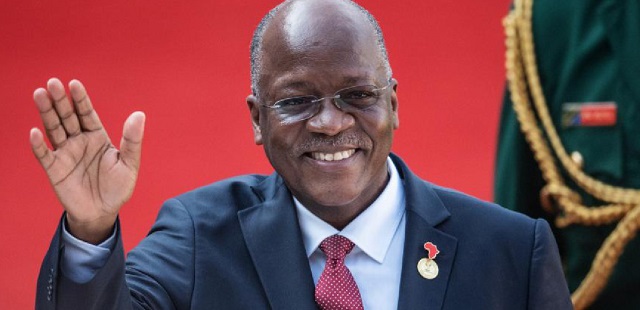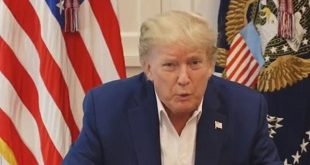
How fallen Tanzanian president was lionised by African elites for doing exactly what they always protest against
THE LAST WORD | ANDREW M. MWENDA | Since his death, former Tanzanian President John Pombe Magufuli has been an object of much praise from many commentators, including a large number Tanzanians. While I admired his motivations and intentions, I never agreed with Magufuli’s approach to reform. I was repulsed by the personalised and arbitrary way in which he conducted public affairs.
I am always puzzled by a large section of African elites. In one second they argue that power should be institutionalised and not personalised and in another; when a leader does what is emotionally satisfying to them but in a personalised fashion running roughshod over institutions, they cheer him along. They claim to oppose dictatorship and insist that power must be checked and balanced. Yet when a leader emerges who does what they demand but does it using arbitrary power, they support him. That was the love affair between Magufuli and this section of African elites.
Magulufi’s presidency was the ultimate manifestation of both the crisis and the contradictions of our elites. Upon coming to power, he exercised a degree of arbitrariness only reminiscent of Idi Amin. He would enter a government facility; be it hospital or school, and finding things gone wrong and without first establishing the circumstances under which disorder grew, he would – on impulse – fire the entire management. At a whim and in a heat of anger, he would cancel government contracts, fire government officials and reverse decisions by his predecessor.
But first a clarification: I am not against the use of a strong authoritarian hand to correct distortions created over decades. Indeed, I believe that reforming a deeply entrenched corrupt system requires a leader to exercise power without being hamstrung by unnecessary checks and balances. Attempts to uphold the highest standards of due process are more likely to abort reform. This is because entrenched interests can use the procedures of government, which they are adept at, to block reform. So, forceful action is a necessary precondition for effective reform.
However, there is a difference between forcefulness and arbitrariness, between institutionalised power and personalised highhandedness and between being authoritarian and being a village tyrant. I am not sorry to say Magufuli represented the latter. His were not reforms but emotionally charged and erratic personal interventions. All too often, he destroyed whatever was there without replacing it.
Reform cannot be based on emotions. It must be based on facts. It must be done systematically through some institutionalised process, not personalised to one’s feelings, acting in the heat of the moment. Even in medieval times, people did not govern without any recourse to established norms or procedures. It is possible that in his many reckless decisions, Magufuli may have corrected some mistakes. But even then, his emotionally charged and highly personalised arbitrariness cannot be justified by such accidental success.
I have seen reform elsewhere which has worked. One example is post 1986 Uganda; the other, post 1994 Rwanda. In 1the 990s, President Yoweri Museveni carried out far-reaching reforms. He knew what he wanted. But he used institutions such as the Army Council, the Army High Command, the National Resistance Council and cabinet to make critical decisions such as the return of Asian properties, return of ebyaffe, privatisation, civil service retrenchment, etc. His reforms were successful and have been sustainable because doing them through institutions gave them a collective mandate and therefore some degree of legitimacy.
 The Independent Uganda: You get the Truth we Pay the Price
The Independent Uganda: You get the Truth we Pay the Price



Where you have put Magufuli I would replace Kagame and the story would sound more believable.
Absolutely. I can’t agree more. Thought the same as I was reading the article before reading the comment above.
For me, Mr “omniscient” M9, I see only one clear point in your today’s piece, and that’s to be found in paragraph number four!
“Indeed, I believe that reforming a deeply entrenched corrupt system requires a leader to exercise power without being hamstrung by unnecessary checks and balances…. “, paragraph number four reads in part.
The rest is naive, generic and therefore crap!
In his “village tyrant” just within the last five years, he has achieved what your adoring god M7 has failed to achieve in more than 35 years and still counting!
Perfect
Whatever faults you find with magufulism,kagame and museveni.won’t achieve even if they were to live forever. Now all the media has lost interest in the closed Uganda-Rwanda border. Give credit to a man who did his job and forget about your friends who can’t share a border! Thank you
Africa can only be ruled through bereaucracy and magufuli proved it, go to Tanzania and you’ll prove magufuli right. Tanzania will miss this guy, As for uganda , they don’t fall in any of the categories you listed in your column, Uganda is a military state head by a axe shaped headed general whose rule can be described as a failed leadership period.
Give examples of all these accusations against Magufuli like you have done with Kagame and Museveni. Be realistic Andrew.He touched the elite who were untouchable.In five years cutting the cartels which smuggled gold and tanzanite,companies and businessmen who were having the ports authority and TRA in their pockets,ghost workers removed from payrolls,sacked all old people who were senile and inefficient in government and the party and brought in young people in the party and government.All those complaining of his methods were rubbed the wrong way Andrew,those who would hide sugar and obtain import licences,selling National housing corporation houses to themselves,collecting taxes for themselves instead of TRA,issuing work permits to foreign nationals any time,anywhere,anyhow……………he could have done some arbitrary actions but he achieved what many African leaders have done in 5 years,every leader has his style of administration anywhere you go but he has manifested to bring trust among people that the government can do things for them.In his words……..they thought I would be part of them,but never.Rest in peace Magu.
M9, everyone has there opinion and we r not meant to believe wat u say. So, keep yo crap to yoself and yoM7 god n let Tz be alone.
Andrew, why don’t you compete for the Ugandan Presidency in 2026 or 2031? You seem to have the right solutions to most problems bedevilling our country. (😂)
Mr M9, of the two, John Pombe Magufuli (may his soul RIP) and Tibuhaburwa M7, who is a Village Tyrant? Before you answer this question please open the link below and read the article therein thoroughly!
Here’s the said link:
https://www.independent.co.ug/farewell-republic-uganda-welcome-rwakitura-kingdom
Hey folks!
Uwelugosi, Mr.O and any other longtime followers of Andrew Mwenda, I kindly need your help.
There is an old monitor article whose screen shot I just saw entitled “Only the rich should rule, says Museveni’s son”.
Now the only problem is that the screenshot only covers the first page of that story.
Yet am curious about how Andrew Mwenda debunked Muhoozi’s argument that a plutocracy would ensure peace and stability since the rich always desire a calm and tranquil environment given that they own property.
Any help in form of the screenshot of the second page or a summary of Mwenda’s argument to the best of your memory would be deeply appreciated.
Cheers!
Benjamin
P.S: Also does anyone know of how I can get access to the Andrew Mwenda live audios?